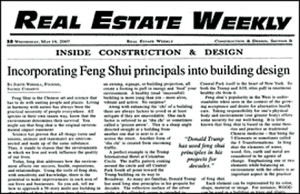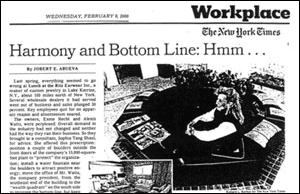 “Feng shui’s popularity in the West is understandable when seen in the context of the growing acceptance and desire for alternative health care.”
“Feng shui’s popularity in the West is understandable when seen in the context of the growing acceptance and desire for alternative health care.”
Feng Shui is the Chinese art of science that has to do with uniting people and places. Living in harmony with nature has always been the practical necessity of people everywhere. All species in their own innate way, know that the environment determines their survival. You might say that feng shui is the original environmental impact statement.
Science has proven that all thing (seen and unseen, animate and inanimate) are interconnected and made up of the same substance. Thus, in stands to reason that the environments in which we live and work influence the quality of our lives.
In feng shui the elements of water, wood, fire, earth and metal are considered to be agents of change. Emphasizing one or two elements while balancing an environment with the others is an important aspect in the practice of feng shui.
These principles can be applied to any style or period. One of the biggest misconception about feng shui it that it is limited to an Asian style. Incorporating feng shui principles into the design of a building, adds to the project’s success as well as making a positive difference to the people who move into those environments.
Public awareness of feng shui is continually growing, and in turn, people are appreciating and looking for the benefits it has to offer.
